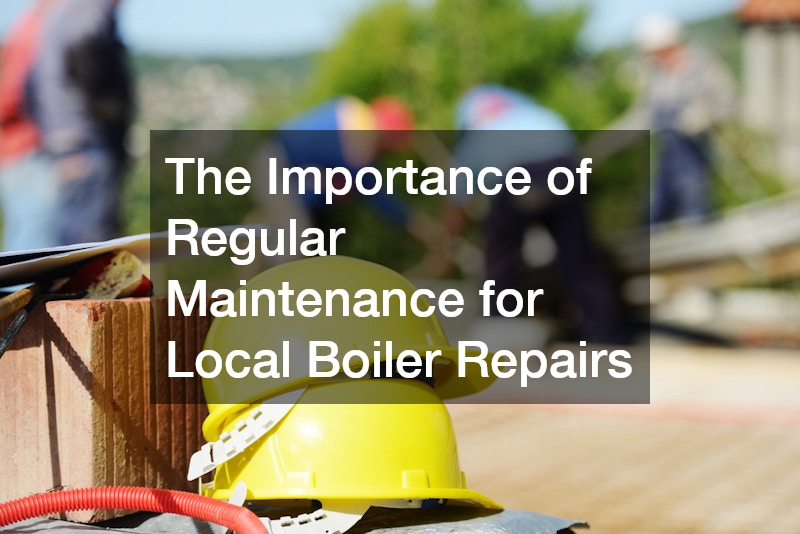
The Importance of Regular Maintenance for Local Boiler Repairs
Understanding the critical role of regular maintenance in ensuring the operational efficiency and longevity of boilers is essential. This article delves into how regular maintenance can significantly impact local boiler repairs and addresses common concerns and questions associated with boiler upkeep. With the high stakes of boiler malfunctions, prioritizing maintenance is crucial for both economic and safety reasons.
Why is Regular Maintenance Crucial for Boilers?
Prevention of Unexpected Breakdowns
Regular maintenance of boilers is a proactive approach that helps identify potential issues before they escalate into serious problems. Early detection is key to preventing unexpected outages that can disrupt operations and lead to costly emergency repairs. For instance, a minor part replacement identified during routine checks can avert a full system breakdown.
The benefits of regular check-ups extend beyond problem prevention to include overall system performance improvement. Small adjustments and tweaks during maintenance can optimize boiler functionality, ensuring heat distribution remains consistent and reliable. This proactive care is indispensable for local communities that rely on uninterrupted heating services.
Enhancement of Boiler Efficiency
Efficient boilers reduce energy consumption, which translates to cost savings for homeowners and businesses alike. Routine maintenance plays a pivotal role in optimizing boiler efficiency, from calibrating components to cleaning parts that can deteriorate performance. This not only helps in lowering energy bills but also contributes to a reduced carbon footprint.
Efficiency improvements are not only economically beneficial but also environmentally responsible. Regularly serviced boilers tend to consume fuel more effectively, emitting fewer pollutants. By optimizing heat exchange and combustion processes, maintenance enhances both system efficiency and environmental sustainability.
Safety Assurance
Ensuring safety is one of the most critical aspects of boiler maintenance. Routine checks are necessary to prevent gas leaks and other hazardous situations that could jeopardize household or workplace safety. Proper maintenance can detect and rectify potential risks before they escalate into dangerous accidents.
The boilers that undergo regular inspections significantly mitigate the risks of malfunctions that could lead to safety breaches. Technicians meticulously examine pressure levels, ventilation systems, and combustion efficiency to ensure everything is within safe operating conditions. This diligence serves to maintain a safe environment for all users.
Complying with safety standards and maintenance schedules is non-negotiable for those committed to ensuring operational integrity. Regular maintenance helps keep up with evolving safety standards by implementing necessary updates and enhancements. Ultimately, this focus on safety protects both property and lives, reinforcing the importance of consistent care.
How Often Should Boilers be Serviced?
Recommended Service Intervals
Industry standards and manufacturer guidelines provide clear recommendations for how frequently boilers should be serviced. Typically, an annual maintenance schedule is suggested, although certain high-usage or older models may require more frequent attention. Timely service ensures that boilers remain in optimal working condition throughout the year.
Carrying out routine servicing according to professional advice helps avert potential malfunctions. Regular assessments by qualified technicians ensure that all components are checked and calibrated as necessary. This attention to detail prevents minor issues from escalating into major repairs.
Signs That Your Boiler Needs Immediate Attention
There are several indicative signs that a boiler may require immediate servicing or repair. Unusual noises, inconsistent heating, and increased energy bills are common warnings that should not be ignored. Prompt attention to these signs can prevent further damage and restore optimal performance.
A decrease in heating efficiency or unusual odors can also signal the need for urgent diagnostic checks. Identifying issues quickly is crucial to avoid compromising safety or efficiency. Local service technicians are trained to handle these situations, offering prompt resolutions to maintain system integrity.
Adapting Service Frequency Based on Usage
Boiler usage patterns and local climate conditions can significantly influence the frequency of necessary maintenance. In colder regions where heating demand is higher, more frequent servicing may be required to ensure optimal operation. Customizing maintenance schedules to fit individual usage patterns ensures efficiency and reliability.
High-usage environments necessitate more vigilant monitoring and servicing to prevent undue wear and tear. Climatic conditions can also impact boiler performance, with external factors playing a role in determining appropriate servicing intervals. By taking these elements into account, one can tailor a maintenance plan that suits both the equipment and environmental demands.
Regular boiler maintenance plays a vital role in safeguarding performance, ensuring safety, and extending the lifespan of heating systems. By adhering to recommended service schedules, boiler owners can prevent costly repairs and enhance energy efficiency. The importance of regular check-ups cannot be overstated, as they are imperative to maintaining optimal functionality and safety standards.
.

You may also like
Written by Remodel Digest
Archives
- February 2026
- January 2026
- December 2025
- October 2025
- September 2025
- August 2025
- July 2025
- June 2025
- May 2025
- April 2025
- March 2025
- February 2025
- January 2025
- December 2024
- November 2024
- October 2024
- September 2024
- August 2024
- July 2024
- June 2024
- May 2024
- April 2024
- March 2024
- February 2024
- January 2024
- December 2023
- November 2023
- October 2023
- September 2023
- August 2023
- July 2023
- June 2023
- May 2023
- April 2023
- March 2023
- February 2023
- January 2023
- December 2022
